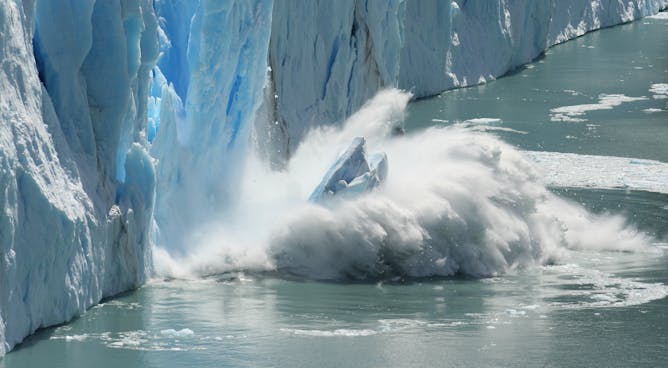|
Greta Thunberg hailed our 2019 article by James Dyke, Wolfgang Knorr and Robert Watson criticizing the concept of net zero emissions as “one of the most important and informative texts [she had] ever read on the climate and ecological crises”. It then landed a prestigious international journalism award. Now the same scientists are back to warn us against rocking ourselves to sleep with fairytales.
One by one, they name them, and take them apart: grand geoengineering plans to refreeze the Arctic, block out the sunlight, or suck out carbon from the atmosphere; dreams of cooling our clouds and burning wood pellets and capturing their emissions and, yes, the forever elusive tail of the rainbow that is the 2050 net-zero goal. Critically, all of these fairytales are legitimised by the idea that we can continue burning fossil fuels and expect technologies of the future to take us back to the safer 1.5C threshold above pre-industrial levels – the "overshoot" myth. Faced with the risks of ecological tipping points, this isn't serious. They tell us how to wake up, and get real.
Yesterday was the International Day of Remembrance and Tribute to the Victims of Terrorism. What better moment to sit down and learn about a growing terrorist threat: masculinism. Over the years, Stephanie Lamy has exchanged views with men who believe that women are inferior and owed to them. In an interview, she told me how to identify them, and why authorities need to start looking at some of them as a terrorist threat. A second, thought-provoking article by Spanish scholars also deconstructs toxic masculinity, highlighting that a culture glorifying it leads teeenage girls to be attracted to boys who harm them. Both pieces point to routes toward more positive masculinities.
Have you plateaued in your language learning? Don’t just keep calm and carry on: read a linguist's list of concrete tips to reach fluency.
|

James Dyke, University of Exeter; Robert Watson, University of East Anglia; Wolfgang Knorr, Lund University
The net zero approach of the Paris agreement has become detached from reality as it increasingly relies on science fiction levels of speculative technology.
|

Jill Boggs, Swansea University
Reshaping your study habits with four essential techniques could reignite your progress and help you push past your current level.
|

Stephanie Lamy, Sciences Po Toulouse
Around the world, violence against girls and women is on the rise. Researcher Stephanie Lamy has investigated misogynistic online subcultures to find out why.
|

Silvia Molina Roldán, Universitat Rovira i Virgili; Garazi Lopez de Aguileta, University of Wisconsin-Madison; Itxaso Tellado, Universitat de Vic – Universitat Central de Catalunya; Leire Ugalde Lujambio, Universidad del País Vasco / Euskal Herriko Unibertsitatea; Lidia Puigvert Mallart, Universitat de Barcelona; Miguel Ángel Pulido, Universitat Ramon Llull; Ramón Flecha García, Universitat de Barcelona; Sandra Racionero-Plaza, Universitat de Barcelona
Media messages normalise gender violence by teaching teenagers – girls and boys alike – that anger is linked to passion and attractiveness.
|
|
|

José Miguel Andrade, Universidade de Santiago de Compostela
A property agreement between two men, signed in 1061, includes heartfelt declarations of lifelong trust and faithfulness.
| |

Cheryl Walter, University of Hull
The mpox outbreak in Africa is cause for concern – here’s why.
|

Justin Stebbing, Anglia Ruskin University
From boosting energy to reducing the risk of developing chronic diseases, a few cups of coffee every day could be beneficial for your health.
| |

Suzanne Bonamour, Norwegian University of Science and Technology
As global temperatures rise, cormorants are having to adapt by migrating more often. Could this change be passed down through their genes?
|
|
|